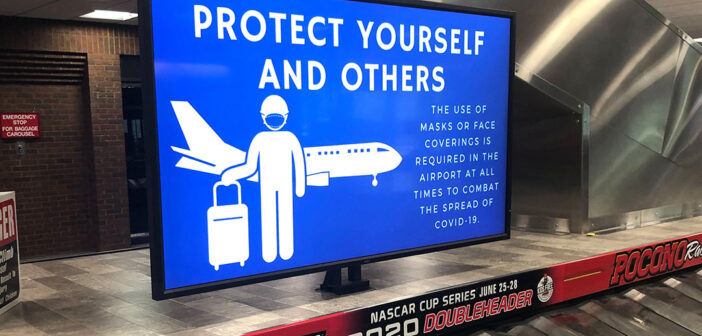As winter break approaches, international students who came to the U.S. for the fall semester have to figure out how to get home amid the pandemic.
While many international students previously only had to worry about booking flights home, students must now comply with protocols put in place by their home countries for re-entry.
Stan Lee, ‘23, was unable to get housing on Lehigh’s campus this fall, but had a friend who offered to let him stay at his lake house in Vermont for the semester and take classes remotely there.
He has plans to go home to South Korea for a month to spend the holidays with his parents and will return to Vermont for the spring semester.
Lee said South Korea has a strict protocol for self quarantine, where your location is tracked through your phone and if you leave your house, you will be fined.
“I will be going straight home to quarantine for two weeks and my parents will be staying at my grandparents’ for a few days until I get a negative test,” Lee said. “They are doing that for my convenience because if my parents were to stay in the house, I couldn’t come out of my room for my quarantine.”
Kadia Nichelle Hylton Fraser, a third-year graduate student in the College of Education, currently lives in Allentown and is planning to go back to Jamaica for break to see her two children and spend the holidays with her family.
She said the pandemic hasn’t caused her any real difficulties for getting home.
“The challenge was during the summer when things were up in the air, but I have not had any issues because we are so far into the process,” Fraser said. “My country has put in specific steps that we have to follow, and having gone through those steps before, it’s the same steps this winter.”
Daniel Bramah, ’23, an international student from London currently living off campus, said his rules for quarantine are not the typical two weeks as in most places.
He said on Dec. 15, the U.K. is changing the rules because the case count is so low that if he goes back after that date, he would only have to quarantine for five days. However, he said police officers come to the homes of those in quarantine to make sure guidelines are being followed, fining those who do not comply with protocol £10,000.
Fraser said Jamaica has also become more lenient for traveling.
“When I went home originally, we were tested at the airport,” Fraser said. “They had doctors that did our testing on site and we had to have an app on our phone that tracked us and that we had to input our temperatures into everyday during our quarantine. Now all I have to do is submit a form that says I’m COVID-19 free and that I’m going to come home and quarantine for two weeks.”
All three students plan to return to the U.S. for the spring semester, but they’re going about their plans to return differently.
Fraser and Lee said they have already made plans and booked flights to return, but Bramah said he’s waiting to book anything because of the unpredictability of the virus. He is waiting until after Dec. 15 to book his flight back to London.
“I’ve been making travel plans last minute because quarantine rules are always changing, and you never know if Trump will put in a ban,” Bramah said.






Comment policy
Comments posted to The Brown and White website are reviewed by a moderator before being approved. Incendiary speech or harassing language, including comments targeted at individuals, may be deemed unacceptable and not published. Spam and other soliciting will also be declined.
The Brown and White also reserves the right to not publish entirely anonymous comments.